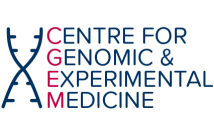Genetic and epigenetic correlates of inflammatory protein level
Inflammatory response protein plasma concentration is shown to be associated with genetic and epigenetic correlates in a recent Genome Medicine publication. July 2020

The inflammation response involves a cascade of molecular and cellular events and is key component of the body’s immune response. Inflammatory proteins play a key role as mediators of these defence and repair processes, because of this the plasma concentration of these proteins is tightly controlled. However, the molecular factors involved in this control are currently not well understood.
An acute inflammatory response that transitions into a state of chronic inflammation can facilitate pathogenesis of a variety of disease states including diabetes, heart disease and stroke. Indeed, globally 60% of individuals will die as a consequence of a chronic inflammation-associated disease.
Research published this month in the journal Genome Medicine, led by Robert Hillary (Marioni Group), used Genome Wide Association Studies and Epigenome Wide Association Studies to identify correlates of inflammatory protein levels. Using this data the researchers aimed to provide robust estimates for the contribution of genetic and epigenetic factors towards inter-individual variation in plasma protein concentrations. In addition, the team also used a Bayesian penalised regression framework termed BayesR+ to examine both the genetic and epigenetic architectures of 70 blood inflammatory proteins in 876 relatively healthy older adults from the Lothian Birth Cohort 1936 study. This analysis method provides the first use of multiple statistical methods in performing genome-wide and epigenome-wide association studies of human proteomic data.
In the study, the group report identification of 13 independent genetic and 3 epigenetic correlates of circulating inflammatory protein levels. The genetic variants identified were shown to account for up to 45% of variance in protein levels, while the epigenetic methylation data accounted for up to 46% of variation. The researchers showed for the inflammatory protein VEGFA up to 66% of the inter-person variation observed could be attributed to the combined genetic and epigenetic data.
This is the first study to have brought both genetic and epigenetic data together using multiple methods to identify molecular correlates and estimate their contribution to inter-individual variability in the circulating proteome.
Our data provides a platform upon which other researchers may investigate relationships between inflammatory biomarkers and disease, and a resource to further inform biological insights into immunological and inflammatory processes.
Links
Read the paper in journal Genome Medicine DOI: https://doi.org/10.1186/s13073-020-00754-1
Marioni Group University of Edinburgh website
Marioni group external website


